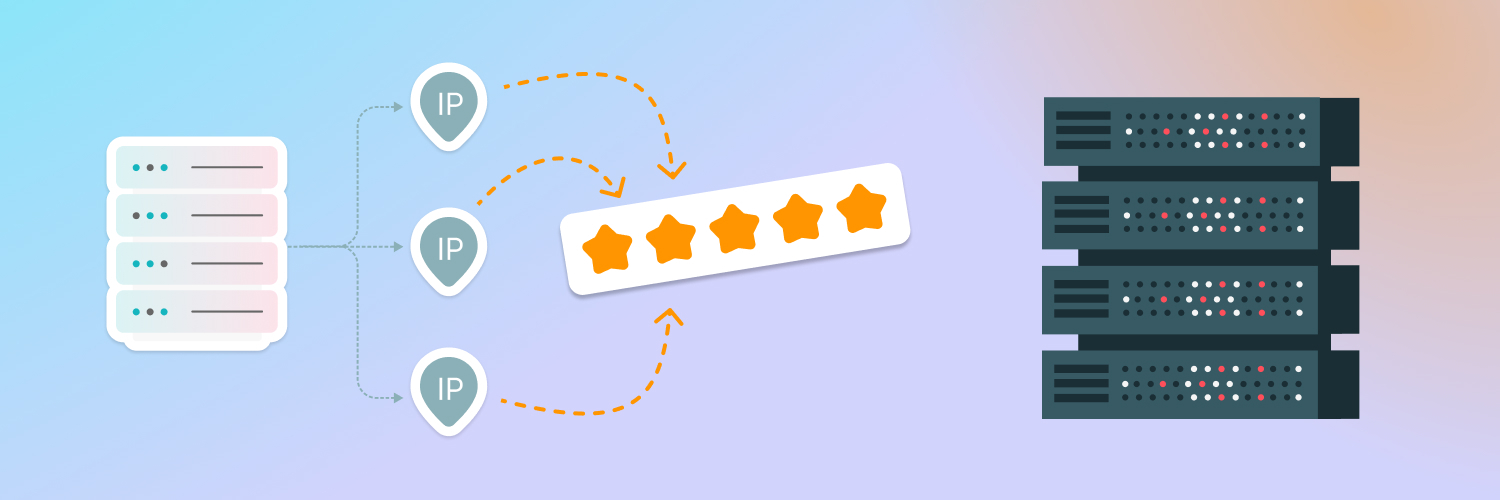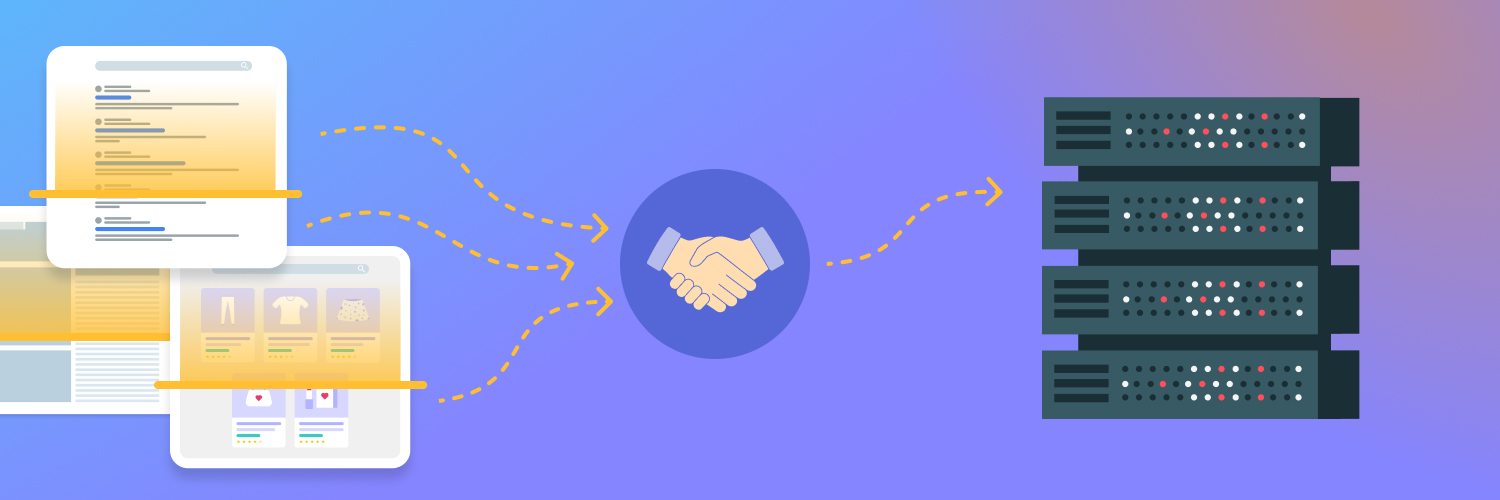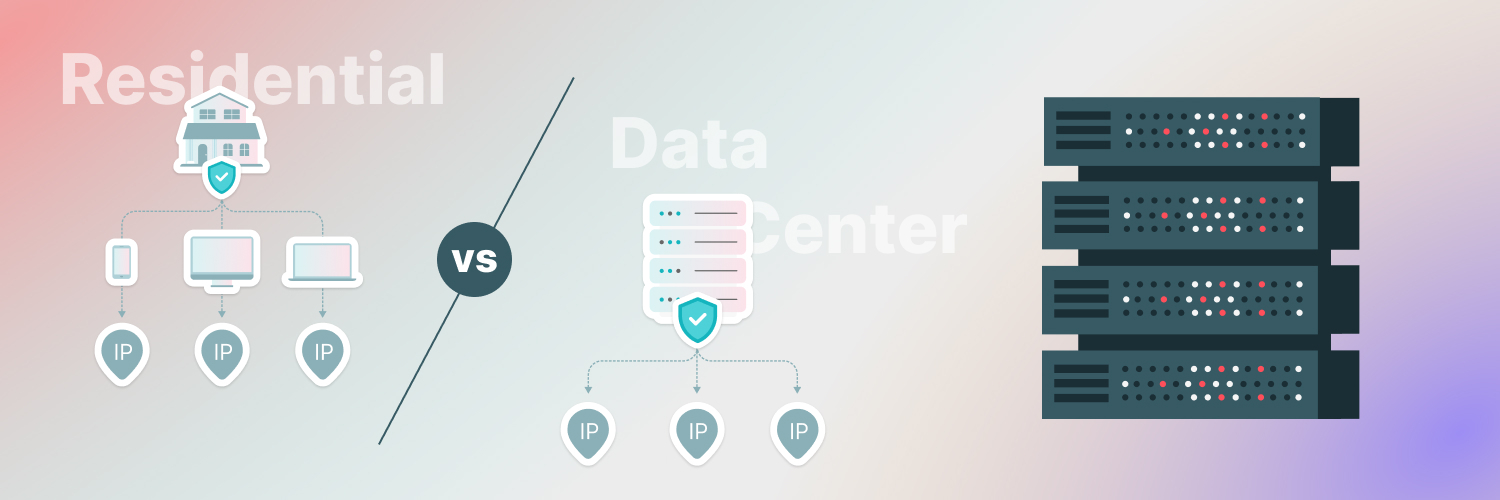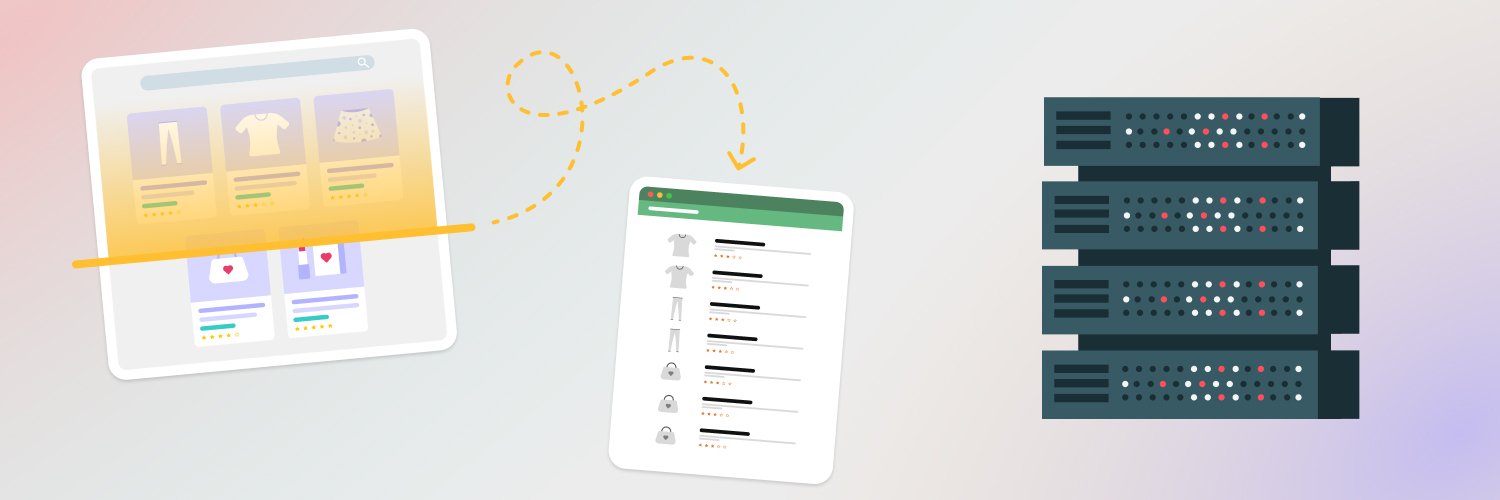10 Things To Consider When Selecting A Proxy Provider
In recent years, data collection capabilities have sparked a new and lucrative renaissance across eCommerce industries. Most businesses that operate online now require extensive web data for analytics, customer profiles, pricing information, and more. As the industry’s need for comprehensive data collection grows, more and more businesses are turning to web scraping to obtain essential web data. Read more about Proxy Provider.
Web scraping can be time- and resource-consuming if done with your company’s own IP address. Many websites can flag and block IP addresses that perform too many web scraping requests. If this happens to your company, you can quickly get locked out of important websites and fall behind the competition when it comes to collecting vital data from the web.
Let’s Cut To The Chase
Want the details on all our proxies? We’ve got everything you could need!

To avoid this problem, many companies turn to proxy providers for their web scraping needs. With different types of proxy providers and so many companies offering proxy services, it can be hard to determine what’s best for you. Fortunately, if you follow some key tips, you can confidently find the best proxy provider to suit your business’s specific needs and preferences.
What Is a Proxy Provider?

A proxy provider is a web program or server that acts as an intermediary between your company’s computer system and the websites you wish to access for data gathering. Whether you’re using your computer at home or in the office, when you access a website, your computer network’s IP address is visible to the company that owns the website. If you use your business’s devices to scrape data from a website, the website can flag your business’s IP address and block further access.
However, if you use a web proxy, your own company’s IP address will not be visible on the website’s end. Instead, your proxy provider’s IP address will show up in its place. The proxy provider shields your own company’s identity from the websites you visit and gives an alternate location and identity.
Proxy providers have other benefits as well. A proxy provider shields your computer network from any malware or viruses that you may inadvertently access when visiting websites. Proxy providers also allow you to get around any geo-location restrictions that would prevent you from accessing certain websites. If a website has blocked IP addresses from your IP’s location, a proxy provider will provide a separate IP address — with a separate geographical location — that allows you to access the site.
What are the different types of proxies?
When shopping for the best proxy providers for your company’s needs, you have a few different options to choose from. Each type of proxy provider has its own strengths and weaknesses relative to what your company needs. Take stock of what you need from your proxy provider and weigh the pros and cons of each type of proxy during your search.
Residential proxies
Residential proxy providers use IP addresses that belong to real users. Each user in the system has leased their IP address to the residential proxy provider to then rent out to third-party users. When you access a website with a residential proxy, the residential IP address will appear for the website rather than your own IP address.
The best residential proxy providers allow you to switch to new residential proxies if one of your IPs gets blocked. However, while there are cheap residential proxy providers, the highest-performing residential proxies may involve costs for all of the data that passes through the system. This is especially true if you want your residential proxies to be high-speed.
Data center proxies
Data center proxies use IP addresses rented from data centers rather than residential addresses. A big advantage of data center proxies is that they typically offer unlimited data. However, you usually can’t circulate through multiple proxy IP addresses as you can with residential proxies. This means that you won’t be able to regain access to a particular site if your data center proxy IP gets blocked.
ISP proxies
ISP proxies are essentially a combination of residential and data center proxies. ISP proxy providers host intermediary IP addresses in data centers that you can use for web scraping activities. However, unlike web scraping proxies, ISP proxies do not use IP addresses that belong to the data center itself. Instead, an ISP proxy uses IP addresses associated with a specific internet service provider. This allows you to circulate through multiple IP addresses while benefiting from the data capabilities of a data center.
Mobile proxies
Mobile proxies connect to a website using a mobile IP address instead of a residential or data center IP address. This makes it look like the user is accessing the site via a mobile device. Mobile proxies can be particularly useful for web scraping from mobile sites.
Scrape at Scale With Chromium
Playwright-compatible. Self-hosted. Built for real infrastructure.

Things to Consider When Selecting a Proxy Provider

In addition to different types of proxies, you will encounter many companies advertising proxy services for web scraping and online data collection. Given the importance of these services for your business, finding the best proxy provider for your company is a must. Keep these ten key considerations in mind.
What are you using the proxy for?
Web proxy providers offer companies a wide range of potential uses, and different types of proxies and proxy providers have individual strengths and weaknesses. Though you may have several different potential uses in mind when shopping for a proxy — such as protecting your network from malware or getting around geo-location blocks from certain websites — you should focus on the most important aspect of your future proxy usage. If your company needs a proxy primarily for web scraping operations, place greater emphasis on a provider that can get around potential blocks and handle the amount of data you need to collect.
For example, if you need to collect moderate amounts of data from the web but may run a high risk of experiencing blocks for individual proxy IP addresses, you should look into a residential proxy provider so you can switch to a new residential IP address if the one you are using gets blocked. If your data needs are moderate, any residential proxy IP should be able to handle the quantities you are gathering. If you have bigger needs, look instead into a data center proxy, which affords you much greater data allowances and web scraping performance.
What is your budget?
Cost is a major factor to consider when seeking a proxy provider for your company. You may come across free proxy providers during your search, but these tend to rank low in both IP quantity and data capabilities. You should only use a free proxy provider if your company has minimal data collection needs or your budget is severely constrained.
The costs for quality proxy providers vary depending on how you are using them and what services they provide. ISP proxy providers are usually more expensive because they offer both the data capabilities of data center proxies and the ability to circulate through multiple IP addresses held by residential proxy providers. Likewise, you pay a premium for mobile proxy providers’ ability to boost your company’s data collection abilities by including mobile sites.
If your budget is limited, consider focusing on core features like IP address circulation of expanded data capabilities.
How much data will you be using?
Another consideration is how much data your company will likely be collecting with your proxy provider. This will determine both what kind of proxy you buy and how much you will pay for it.
If you use a residential proxy provider, the cost will likely be per quantity of data. For example, a residential proxy provider may charge $15 for one gigabyte of data. While this may not seem expensive, keep in mind that most data collection involves much greater quantities. If your company’s data collection needs involve terabytes of data, or even hundreds of gigabytes, that $15 can turn into thousands of dollars very quickly.
If your data collection needs are extensive, you may need a data center proxy provider, which offers unlimited data per IP address. No matter what type of provider you end up using, have a good idea of how much data you plan to collect before paying for a provider service. And when looking at individual services, find out the payment options for specific data quantities and measure those costs against your planned data use.
How many proxy IPs do you need?
One of the biggest risks when using bots to scrape data from websites is the possibility of your IP address being flagged and blocked. A single proxy IP address can help you with web scraping in many regards, but any single proxy IP can also get blocked.
If the websites your company collects data from are more likely to flag and block IP addresses associated with web scraping, or if your data collection needs are complex enough that even a few blocked IP addresses can cost your company money and resources, look for a provider that allows you to circulate through multiple IP addresses. If you are using a residential proxy provider, for example, you can usually switch to a new residential IP address quickly if one proxy gets blocked.
An ISP proxy will also afford you multiple IP addresses alongside increased data processing capabilities, though these are more expensive. If you do not foresee the potential blocking of your proxy IP address to be a major concern, you can use a data center proxy provider instead of a residential proxy provider.
How much speed do you need?
The speed of different proxy IPs is another important consideration. If you use a residential proxy provider, you will have the benefit of accessing large quantities of residential IP addresses for web scraping. The downside is that each residential proxy IP you use may have different speed capabilities.
When a faster residential IP address from a residential proxy provider gets blocked, the next one you use may end up being slower. If speed is important for your data collection needs, invest in a faster data center proxy or another provider that guarantees fast data processing capabilities.
Are you using a proxy for mobile websites?
Mobile devices are the new frontier in the world of eCommerce. More and more web scraping operations are focusing on mobile sites and mobile apps for their data collection. If your company is selling products via a mobile site, gathering data online on mobile prices and mobile product offerings can offer tremendous resources.
Yet mobile web scraping requires specific proxies that can access mobile sites. A mobile proxy provider will allow your company to collect large quantities of data from mobile sites and mobile apps. These types of proxies do tend to be quite expensive, though, so it’s important to balance your need for mobile web scraping against your available budget.
Are there any specific features you need?
Providers may offer additional features to go along with their basic proxy service, which can make a difference in your decision on which to choose. For example, some proxy providers offer management tools that would improve your company’s overall proxy experience. While many companies download a proxy browser extension from a third party, some proxy providers offer their own public proxy management API.
Proxy providers that specialize in web scraping may also offer features like IP rotation. This automatically switches to a new IP address with every connection request on your end, preventing time-consuming blocks from various websites, especially if your company uses a bot to scrape web data.
Do you need IP addresses from specific countries?
Your company may need to access IP addresses from specific countries when its residential IP address is stuck behind a geo-location block, or if you need to present a specific country location with your IP to access particular websites or website data. Some providers offer proxy IP addresses from specific countries that allow you to get around geo-location blocks or location-specific limitations.
What proxy network size would suit your needs best?
Different proxy providers have different network sizes, which influences their overall capabilities. A provider with a larger network offers more subnets of IP addresses for your web scraping needs. A “subnet” is a block of 256 individual IP addresses that a particular proxy provider has available for clients. The more subnets a proxy provider possesses, the greater flexibility it can offer you in terms of proxy capacity.
What kind of customer service do you expect?
Even the best proxy networks are highly complex, and technical issues may pop up at the worst possible times. A proxy provider with exceptional customer service will go a long way in assuaging any fears or anxieties that come with a proxy network crash.
Customer service should allow you to speak to representatives via phone or video conferencing. You should also be able to submit tickets for any technical issues you experience, though these can take longer to generate a response. If you are in a different time zone from your proxy provider, or if you are running web scraping via proxy after normal work hours, you’ll likely want a proxy provider with 24-hour customer service.
Top Proxy Providers

The best proxy provider for your company offers a good balance of proxy offerings, data capacity, affordability, and excellent customer service. With Rayobyte, customers benefit from multiple, high-level proxy types that meet any data collection needs.
Rayobyte features a sizable pool of high-quality residential proxies, which provides customers with a unique IP address for every connection request they send. Additionally, Rayobyte offers award-winning data center proxies that feature fast speeds and 99% uptime for different proxy requirements. For customers looking to combine the best features of residential and data center proxies, Rayobyte’s ISP proxies feature 9 real IP ASNs and 1 Gbps speed. And Rayobyte has high-level mobile proxies for more extensive mobile-based web scraping operations.
Fulfill your proxy provider needs with Rayobyte
No matter what you need, Rayobyte’s extensive proxy offerings can take your web scraping capabilities to the next level. Rayobyte meets corporate budgetary constraints and provides exceptional customer service that connects you to an expert support agent through a convenient chat interface. New customers can sign up for a free trial of Rayobyte’s residential or ISP proxy services so you can see how well Rayobyte performs before making a financial commitment.
If your company needs a quality proxy provider, take a look at Rayobyte’s proxy offerings. You can also browse Rayobyte’s blog for helpful tips and information on web scraping with proxies, get in touch with our sales team, or sign up for your free trial of our state-of-the-art proxy services today.
The information contained within this article, including information posted by official staff, guest-submitted material, message board postings, or other third-party material is presented solely for the purposes of education and furtherance of the knowledge of the reader. All trademarks used in this publication are hereby acknowledged as the property of their respective owners.



